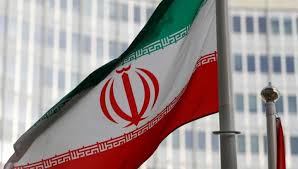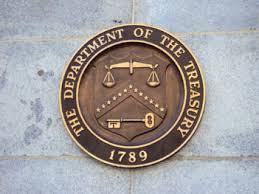Berkshire Hathaway Agrees to Pay $4.1 Million for Iran Sanctions Violations

What a year for OFAC – Amazon settled its case for OFAC violations and now add Berkshire Hathaway. Lat year, Apple settled with OFAC for sanctions violations.
Sanctions compliance is not rocket science – it requires commitment, dedication, expertise and resources. The board and senior management have to understand the importance of sanctions compliance and execute a plan to do so.
Unfortunately, it appears like corporate America does not take it seriously. Warren Buffet’s famous quote makes it clear how he feels about this issue:
Lose money and I will forgive you. Lose even a shred of reputation and I will be ruthless. …… Wealth can always be recreated, but reputation takes a lifetime to build and often only a moment to destroy.
Berkshire’s recent OFAC settlement has had – and will have – an impact on Berkshire’s reputation. Under the settlement, Berkshire agreed to pay a penalty of $4.1 million to resolve the violations.
Berkshire’s problem developed because of the conduct of its subsidiary ,IMC International Metalworking Companies and IMC’s wholly-owned subsidiary in Turkey, Iscar Kesiei Takim Ticareti ve Imalati Limited Sirket (“Iscar Turkey”). IMC is the second largest metalworking company in the globe, and is based in the Netherlands.
In 2017, after receiving an anonymous tip, Berkshire submitted a voluntary disclosure to OFAC relating to violations of the Iran Sanctions Program committed by Iscar Turkey. Berkshire cooperated with the OFAC investigation, terminated the employees involved in the violations and implemented en hanced complaince procedures.

From December 2012 to January 2016, Iscar Turkey engaged in 144 transactions involving Iran valued at approximately $383,443. Icar Turkey sold cutting tools and related disposable inserts to two Turkish intermediary companies knowing that those goods would be supplied to an Iranian distributor for resale to Iranian end users, including some that would be classified as falling within OFAC’s definition of the Government of Iran. In addition, Iscar Turkey purchased goods produced by other Berkshire subsidiaries to fulfill orders destined for Iran.
Iscar Turkey engaged in these activities despite direction and repeated communications from IMC headquarters and Berkshire regarding U.S. sanctions and application of the Iran Sanctions Program to Icar Turkey’s operations.
Notwithstanding these communications and directions, Icar Turkey’s General Manager believed that the European Union and US sanctions against Iran would be lifted and sought to get a heads start on entering the Iran market. To position the Icar Turkey for Iran business, the General Manager at Icar Turkey established in 2012 a small volume of commercial business with an Iranian distributor so that, once the sanctions were lifted, Iscar Turkey could expand its business in Iran.
On June 11, 2012, Iscar Turkey’s Sales Manager and two other employees travelled to Iran after Iscar Turkey was approached by an Iranian company regarding a potential large order of cutting tools. Iscar Turkey’s General Manager authorized the trip. While in Iran, the individuals met with senior managers of an Iranian distributor. After the meeting, Iscar Turkey established a business relationship with the Iranian distributor and used two independent Turkish companies to conceal that the goods were ultimately intended for customers in Iran.
In January 2013, Iscar Turkey gave one of the Turkey distributors an authorization letter to certify it as an authorized distributor responsible for selling IMC products in the region. The letter was specifically used to arrange sales to customers in Iran.
The General Manager and his employees took steps to conceal Iscar’s business with Iran and plans to expand the business in the future. Specifically, Iscar Turkey used private email addresses to circumvent the controls and visibility in the corporate email system; utilized false names in internal records of Iscar Turkey to conceal transactions; providing false assurances in response to compliance inquiries; providing false evidence of a compliance training sessions; and, during the internal investigation, the General Managers and employees lied to the interviewers and advising others to lie to investigators.

To conceal Iscar Turkey’s dealings with Iran, the Iranian distributor made payments in cash and Euros. Bank payments were also made in Euros. The Turkey distributors arranged with other Turkish companies to issue false invoices, and falsely listed the ultimate customer in Turkey rather than Iran. In particular, Iscar Turkey’s employees listed existing end-user customers for many of the orders to conceal from IMC and Berkshire that sales to Iran were occurring. One of the false end users was, in fact, an Iscar Turkey employee.
Notwithstanding all their attempts to conceal their activities, IMC employees were exposed to specific information in emails which could have revealed the orders from Iscar Turkey were intended for Iranian customers. For example, IMC companies received emails containing an address in the email chain which indicated that the distributor was in Iran; or referencing a customer in the email chain known to be located in Iran. Despite these warning signs, only one employee determined that an order was for an Iranian customer and informed Iscar Turkey that the transaction was prohibited by the Iran Sanctions Program.














